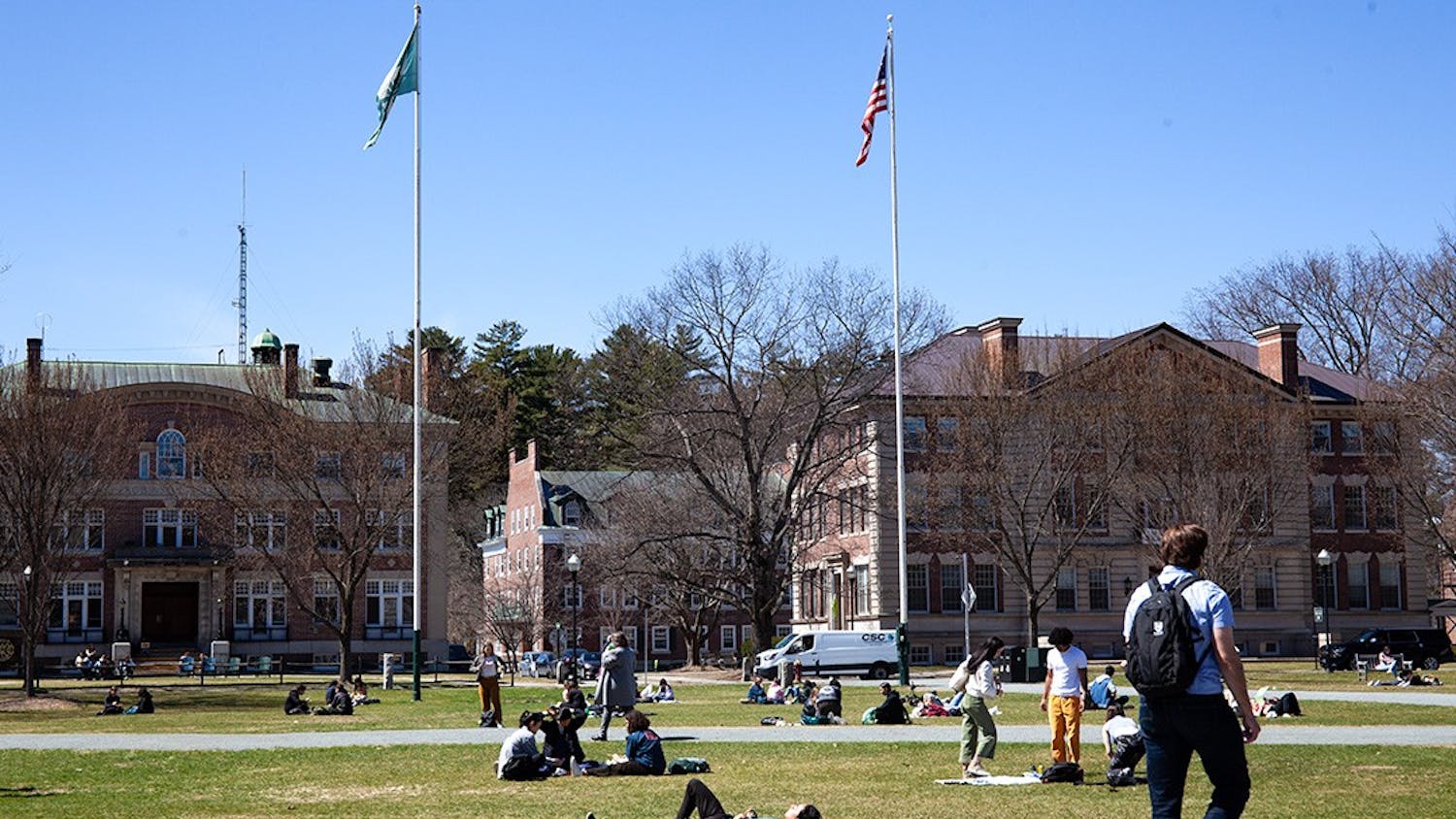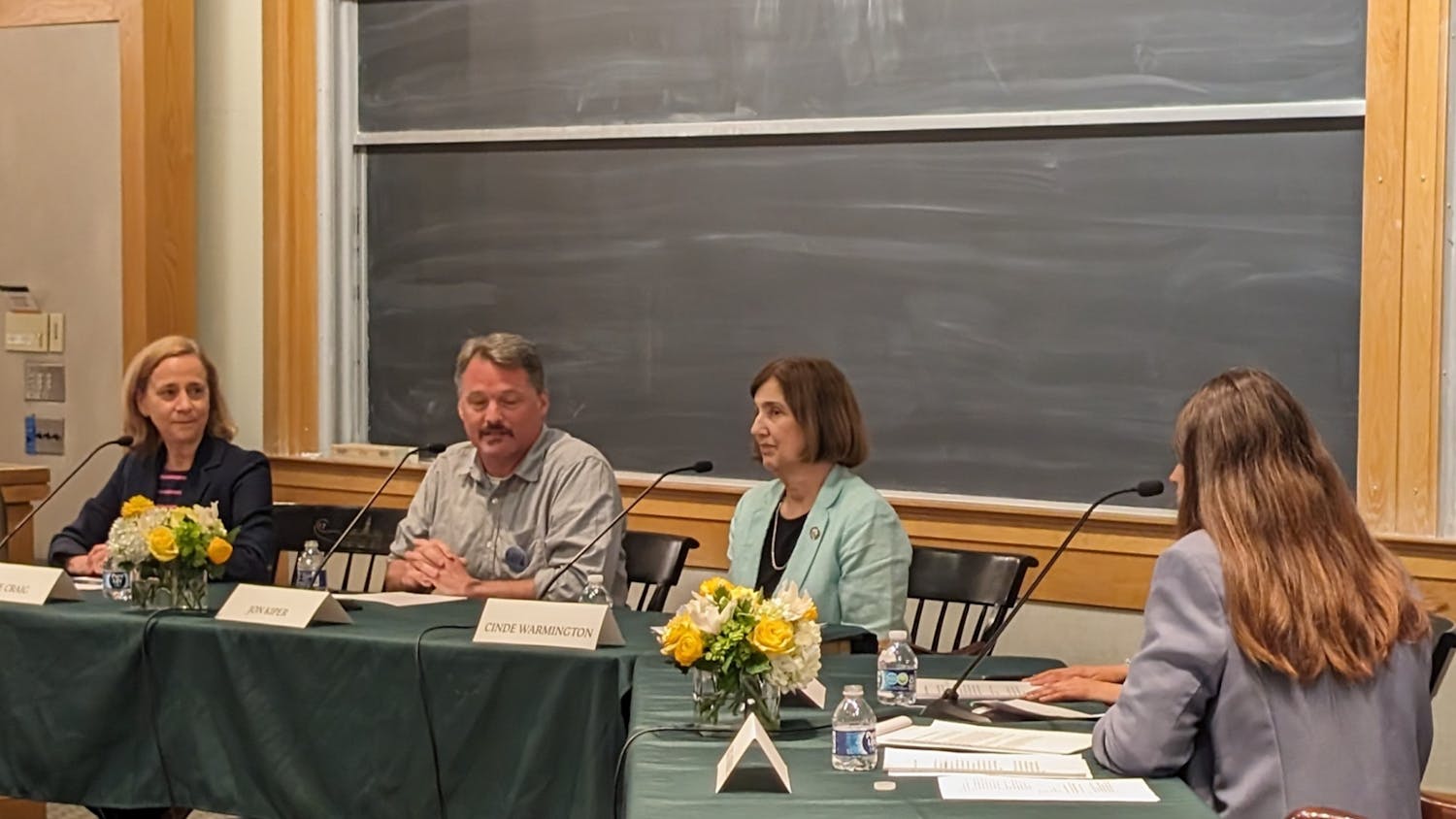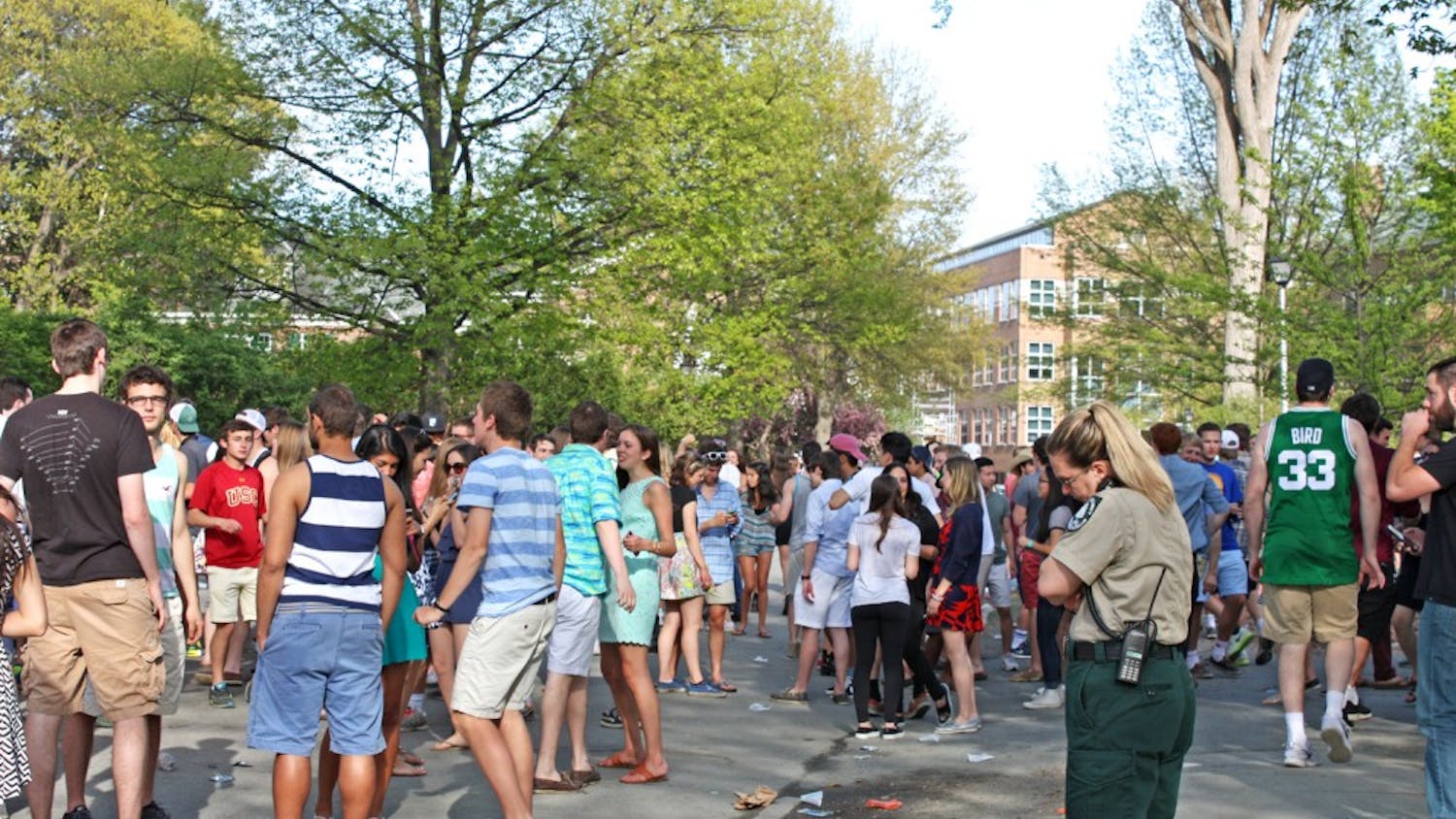Hanna Farrar '09 was kayaking in North Carolina with the Ledyard Canoe Club over spring break when, after going off a small waterfall and landing on a rock, she shattered her right ankle, dislocated her right foot and broke her left ankle. When she arrived at Dartmouth for Spring term, she was in a wheelchair with metal rods sticking out of both legs.
Her first trip in the wheelchair to Thayer Dining Hall was "terrifying," she said.
Although Dartmouth satisfies all government regulations regarding handicap accessibility, according to College officials, it is often difficult to maneuver campus, Farrar said, which raises questions about how practical Dartmouth is for disabled students. There are currently no undergraduates who are deaf, completely blind or permanently in a wheelchair, according to Ward Newmeyer, director of Student Accessibility Services.
"It's remarkable how few blind students or wheelchair-users come to Dartmouth," Newmeyer said. "I'm concerned about that."
SAS works with disabled students on campus to make Dartmouth equally accessible to the whole community, Newmeyer said. SAS also works with students who have temporary handicaps, according to Larry Cusick, the SAS assistant.
The campus's accessibility is limited by its inadequate signage, Newmeyer said. As many of the structures on campus are old, accessible entrances have been added to the sides and backs of buildings. There are few signs highlighting these secondary entrances, Newmeyer said.
The winter season also poses challenges to accessibility, as the asphalt pathways split and become covered in snow, greatly impeding the travel of disabled students, according to Dean of Residential Life Martin Redman.
Although weather may play a role in handicapped students' decisions not to come to Dartmouth, other schools with harsh winters such as the University of Minnesota enroll many disabled students, Newmeyer said. He added that he does not know why Dartmouth does not attract these students.
The College and SAS work with each disabled student to assist the student in the best way possible, according to Newmeyer. For example, handicapped students give the College their default schedule for the winters so that snow removal efforts can focus on clearing the particular pathways they use, Newmeyer said.
Although Dartmouth's landscape is generally flat, Farrar said that the College's large campus and harsh winters would have impacted her decision to attend Dartmouth if she were a prospective student in a wheelchair.
"I don't know if it would have completely turned me away from Dartmouth, but it would have affected me," Farrar said. "The campus is a lot bigger when you can't walk. Being here in the winter would be really difficult."
The College began to focus on accessibility in the 1970s, Redman said. In 1973, Congress passed the Rehabilitation Act, which required institutions that receive federal financial assistance, such as Dartmouth, to become more accessible, according to Newmeyer. Specific regulations for the Rehabilitation Act were finalized in 1978.
In 1990, the government passed the Americans with Disabilities Act, which applied these regulations to all public places, including those that do not receive federal assistance, such as grocery stores, Newmeyer said.
Government officials reviewed the College's residential halls two years ago and were impressed with the dormitories' accessibility, Redman said. Approximately 800 of the 3,400 bedrooms currently available on campus are accessible, according to Woody Eckels, director of Residential Operations.
Although not all residence halls are currently compliant with federal requirements, all those that have been built or retrofitted since 1999 are handicap accessible and go beyond government regulations, Redman said. For example, only five bedrooms are required to be handicap accessible in the New Hampshire Hall, which is currently undergoing renovation, but all 101 bedrooms will follow ADA guidelines when construction is complete.
"We're trying to do what the law requires because it's the right thing to do to make sure that students aren't impaired at being successful," Redman said. "If you're in a wheelchair and want to live on the fourth floor for the view, terrific."
Farrar lives on the first floor of Massachusetts Row, a wheelchair-accessible cluster. Her room's bathroom is too small to use, she said, so she has to shower at the recently renovated Hitchcock Hall.
Social spaces that hold organized programs, like registered parties, must also be accessible or have the potential for accessibility, Redman said. As a result, fraternity and sorority houses are required to have a plan for accessibility, Redman explained.
"If you're going to keep having parties in the basement, you need a way to get people down there," Redman said.
Alpha Delta fraternity is installing a wheelchair lift this summer, and the College is also adding one to Chi Heorot fraternity, according to Redman. The cost of each lift is projected to range from $50,000 to $70,000, he said.
Although initially overwhelmed with being in a wheelchair on campus, Farrar said she has become accustomed to it, upgrading to a chair with thicker wheels and learning how to pop wheelies over small bumps, she said.
"It's definitely made me a lot more patient," Farrar said. "I've learned to ask for help. Everyone is really nice about it, which is great."



